Two years ago, Boris Johnson had British politics at his feet. He had won the largest Tory majority since Thatcher, broken the Brexit deadlock and forged a new electoral coalition.
Yet Johnson now finds himself on the verge of a vote of no confidence by his own MPs, and this turnaround hasn’t been triggered by some great ideological divide: this isn’t like old Tory arguments over imperial preference, the poll tax or Europe but by Johnson’s own behaviour and the way No. 10 is run.
Downing Street had hoped that Sue Gray’s report would come out later this week, and they presumed it would give them the opportunity to launch a fightback. The plan was to argue that Johnson hadn’t knowingly broken the rules and that a Prime Ministerial resignation would be a disproportionate response. Various people were set to fall on their swords to show that the Downing Street culture was changing. Not everyone in the building was enthusiastic about this strategy (for obvious reasons) but senior figures were prepared to resign to try to protect Johnson himself.
The Gray report is now likely to arrive next week. Rumours swirl in Whitehall that this timetable is not good news for No. 10, but no one is certain. What is clear, though, is that the Gray report would now need to be very favourable to Johnson if a vote of no confidence is to be averted, and it is unlikely to be so.
Johnson’s political views have always been flexible, but one constant in his thinking has been an objection to the state bossing people around. Covid, though, made Johnson the bossiest Prime Minister in peacetime history. He ended up dictating the minutiae of all our lives, how many guests you could have in your home, how far you could travel.
These restrictions were unprecedented in British history. The public accepted them with remarkably good grace — few would have predicted that people would be so compliant for so long. The news that there were parties, or ‘gatherings’, in Downing Street in this period was, then, particularly damaging. It offended against a very basic sense of fairness. Too many people in No. 10 thought that they could just bluster their way through these allegations, which was entirely the wrong approach.
An apology and a full account of what had happened was the only thing that might have worked. And this, perhaps, reflects one of the biggest flaws in Johnson’s Downing Street: the lack of internal challenge. Hard truths and hard choices are too often ignored in that building because the Prime Minister’s top team fear he will find them uncomfortable.
Normally, Johnson’s attitude to scandals is to say nothing and wait for the media to move on. At Prime Minister’s Questions last week, he did apologise, but the way in which he did so highlighted the problem. He started off well but then became increasingly legalistic and tried to explain the situation away.
Johnson is now relying on the defence that no one had told him the event was against the rules. But seeing as his government had introduced these rules, this is an odd position to take, and it’s not altogether surprising that it triggered several MPs to submit their letters of no confidence.
Johnson has survived many scandals that would have sunk any other politician, which is why he did not initially realise how serious things were. Those who saw him after PMQs last week were struck by how unfazed he seemed. It was only over the weekend that it seems to have dawned on him how precarious his position is.
One of Johnson’s problems is that strained relations with his own whips following the Owen Paterson affair and a failure to staff the office properly means that No. 10 is wary of relying on its judgement; instead, it is using its own shadow whipping operation including old Johnson allies such as Nigel Adams, Chris Pincher, Conor Burns and his parliamentary private secretary Andrew Griffiths.
In the meantime, a few headline-grabbing policies have been pushed out. But two years into a government, actions speak louder than words. It’s all very well to promise to sort out the issue of small boats and illegal immigration in the Channel, but the fact remains that the situation is worse today than it was when Johnson won his majority. Even ministers find it hard to know what to say to counter claims that the border force has become a sort of taxi service for asylum seekers.
Tory MPs have been telling Johnson’s allies that they will only carry on supporting him if there are significant changes made to the Downing Street operation, and Johnson had hoped to appease them by announcing that he was bringing Lynton Crosby back. Crosby is respected by Tory MPs, who think he can keep Johnson in line and focused. One cabinet ally likens Johnson to a bright but disorganised schoolboy who needs a tutor to get him through his exams. But Downing Street is now telling allies that there isn’t yet a deal with Crosby to be announced.
It is anyway impossible to imagine Crosby in Downing Street unless Johnson was prepared to abandon his way of running the place. Johnson has always liked a system where no one faction is dominant. Rather like British foreign policy towards Europe in the 19th century, he likes to maintain a balance of power between his advisers. He doesn’t want to give any one faction control; this was one of the reasons why he and Dominic Cummings fell out so spectacularly.
But Tory MPs are tiring of the competing agendas in Downing Street. Those trying to save Boris argue that only he can hold the Tories’ electoral coalition together. It is right that no other Tory could have created such a coalition. Brexit and Jeremy Corbyn, or more accurately fear of Corbyn, might have given the Tories a particularly powerful cocktail of issues, but it was Johnson who made it fizz. Yet it is striking that, as Katy Balls argues in her article, it is MPs elected for the first time in 2019 who have turned against Johnson so fiercely. They feel that he has exposed them to the charge of ‘one rule for you, another for the rest of us’ that is so toxic, especially to Conservatives. They fret that he has unleashed against them the very anger at an arrogant elite that he channelled so successfully at the last election.
Even those cabinet ministers loyal to Johnson, the ones most furious at those MPs calling for him to go, worry that ‘if it goes to a vote he’s finished’. In the circumstances of a vote, many Tory MPs who haven’t written letters would vote to end this as quickly as possible. They would rather have a new leader than a badly wounded one. Johnson, though, has indicated to allies he would fight any vote of no confidence. Party grandees take the view that if he did not get 200 votes, his position would be untenable. But the rules simply require Johnson to win a majority of one.
Not since Thatcher have the Tories deposed a leader who had won a majority at the last election. Thatcher being pushed out injected a poison into the Tory bloodstream that took 15 years to dissipate. Would forcing Johnson out do the same? Some Tory MPs fear it might. They argue that you would need more evidence that Johnson is no longer an electoral asset if his supporters are to be convinced that this is the right move. Cabinet ministers worry about a ‘stab in the back’ narrative developing, a sense that Johnson was taken down by a plot. But one consolation for the Tories is that the issues surrounding Johnson are not ideological. Unlike Thatcher and Europe, the issues involved in this vote won’t play out in future leadership contests. Johnson is a unique politician, and the things that might bring about his downfall are too.
When Johnson was still mayor of London, one of those who knows both the Tory party and him well told me: ‘The Tory party will only turn to Boris when it is 3-0 down and there are only 15 minutes to go.’ He was seen as too unreliable, too ill disciplined and not enough of a team player to be risked in any other circumstances. In the summer of 2019, the Tories were at least three down: they had just come fifth with less than nine per cent of the vote in the European elections. Johnson did his job then, getting the Tories out of that hole and winning them a handsome majority that no one else could have. But in his transactional relationship with the Tory party, he has not done enough with that majority to make people forget the doubts they once had about him.
Got something to add? Join the discussion and comment below.
Get 10 issues for just $10
Subscribe to The Spectator Australia today for the next 10 magazine issues, plus full online access, for just $10.
You might disagree with half of it, but you’ll enjoy reading all of it. Try your first month for free, then just $2 a week for the remainder of your first year.


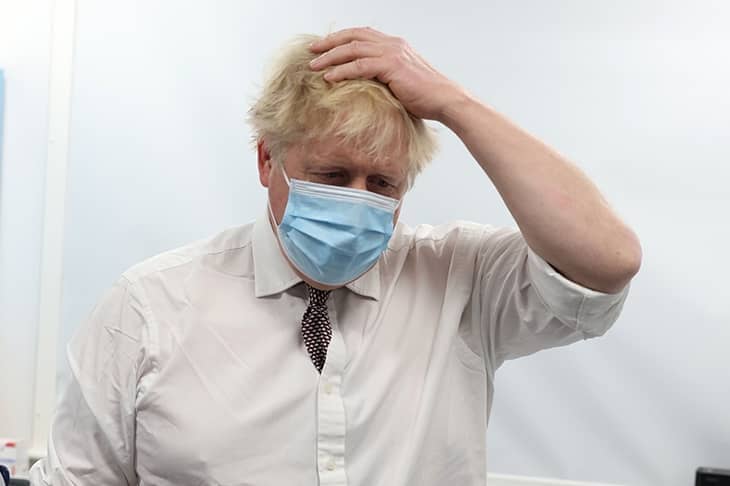
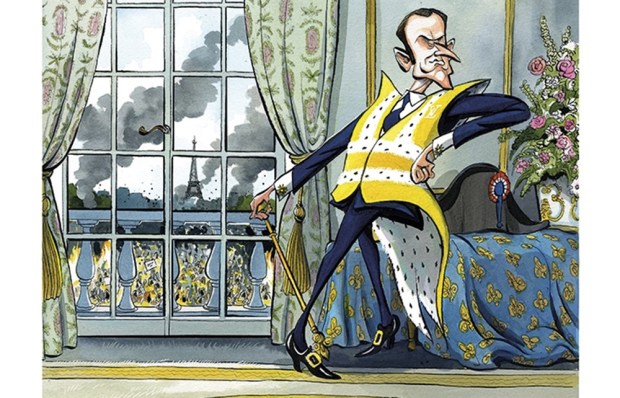
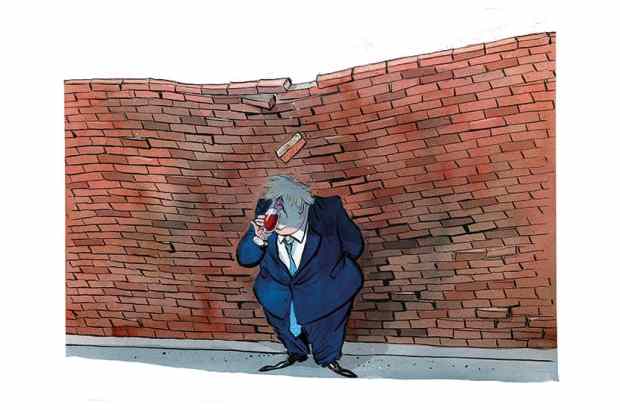
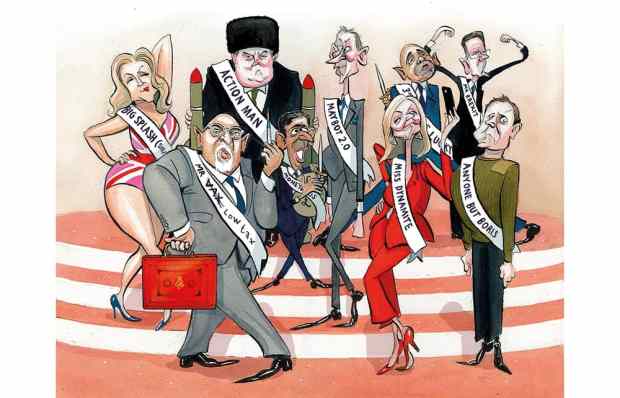
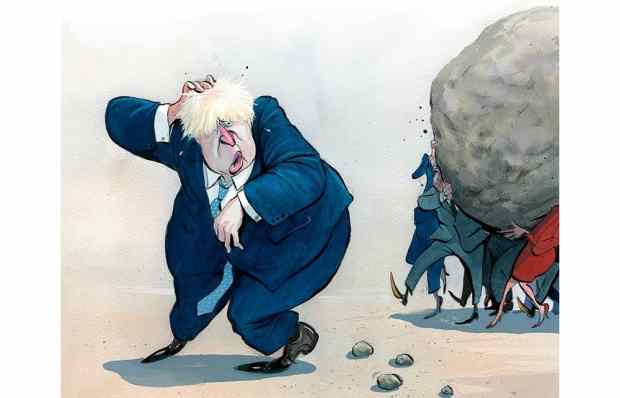
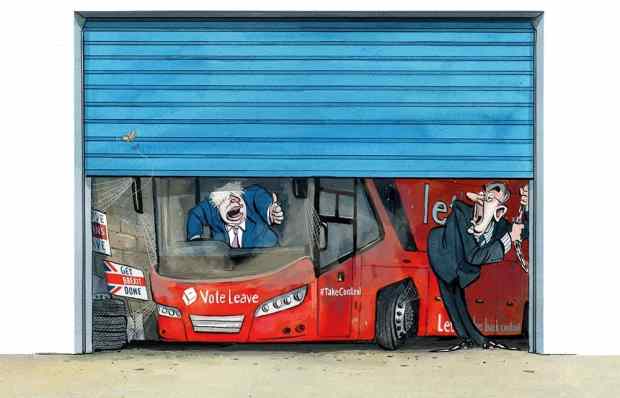
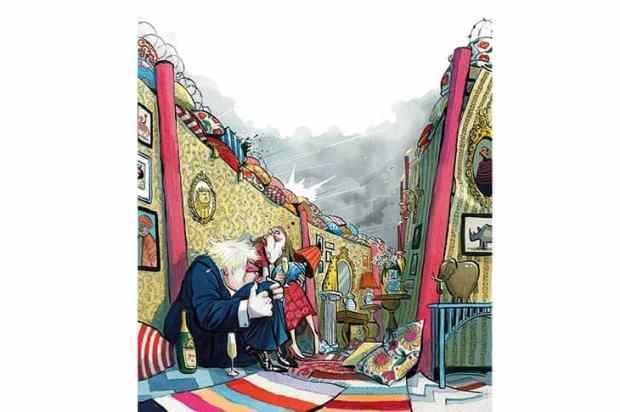






Comments
Don't miss out
Join the conversation with other Spectator Australia readers. Subscribe to leave a comment.
SUBSCRIBEAlready a subscriber? Log in